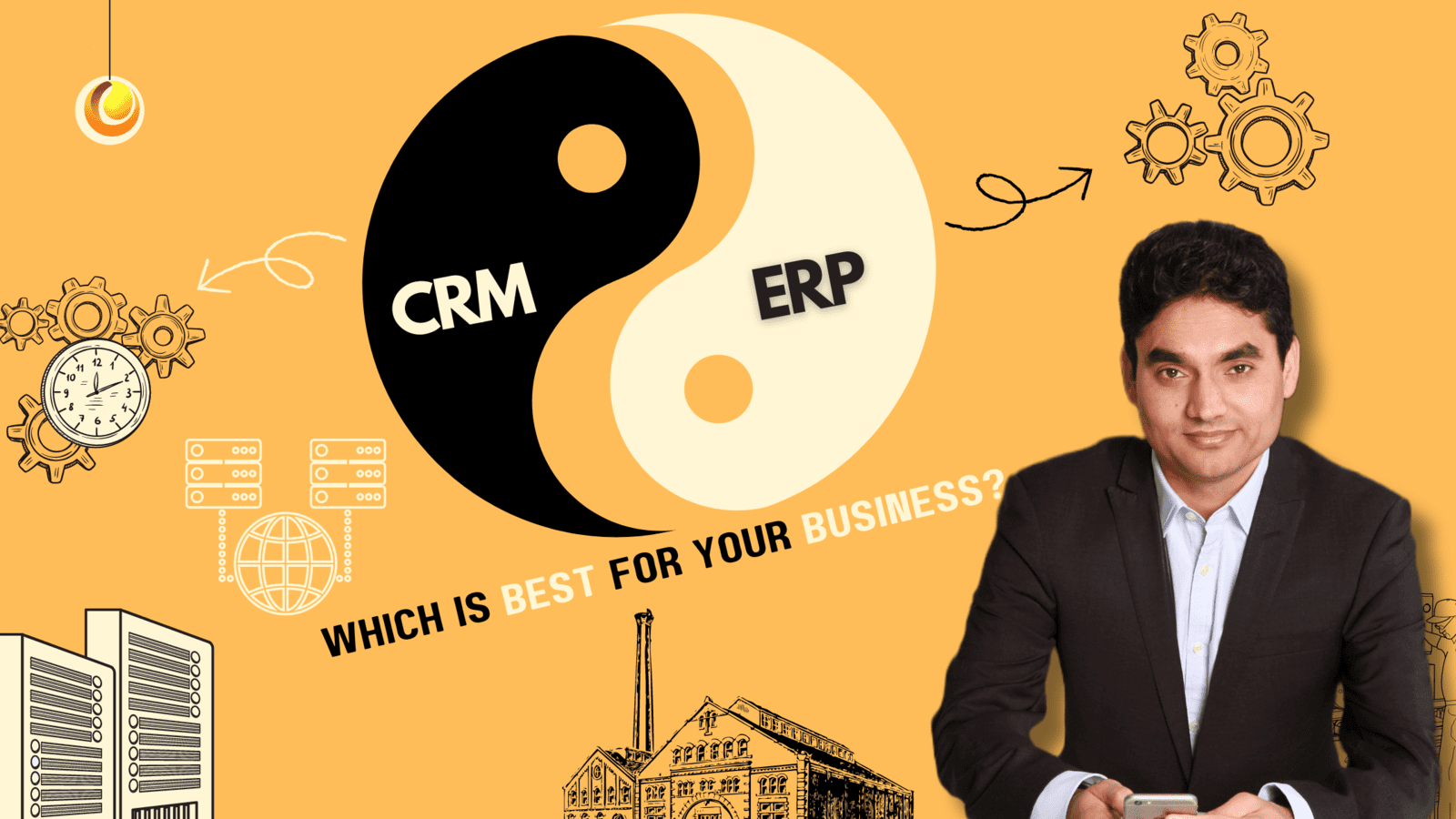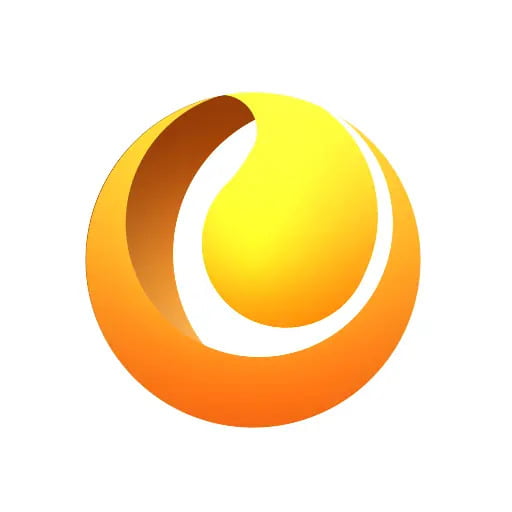Introduction
In the fast-paced world of business technology, terms like CRM (Customer Relationship Management) and ERP (Enterprise Resource Planning) are frequently thrown around. But what do these systems do, and how are they different? Let's embark on a journey to demystify CRM vs ERP by breaking down their complexities into everyday language.
CRM - Customer Relationship Management
Imagine an efficient assistant for your company, keeping a note of every interaction with your clients. Whereas it was only used with sales teams at its initial invention stage, CRM has evolved to include customer service and marketing in the process. Imagine a digital notepad where all the information about every client and their relationship with your company is all in order.
For example, if a salesperson is visiting a customer, instantly the CRM system identifies whether the customer has some unresolved issue with a business organisation. Similarly, at customer service teams, instantly identify if the caller is a valued customer or can become a valued customer and route them to the right support teams.
ERP - Enterprise Resource Planning
Now, consider the ERP system as your firm's control room or somewhat like the motherboard of the computer that connects all the vital parts. ERP has all the financial and operation information of your organisation: from budgeting and payrolls to inventory management and order processing; it is sort of a huge digital filing cabinet holding everything your company needs to function properly.
ERP helps to generate reports for any business with ease. You will not have to depend upon IT experts and finance gurus to juggle numbers for you. This allows the business to make faster decisions based on accurate data, increasing profitability, efficiency, and overall performance.
Benefits of CRM vs ERP
CRM benefits:
- Deliver Better Customer Service: No more long waits or repeating yourself. CRM system keeps all customer info in one place for faster, smoother service.
- Boost Productivity: CRM automates tasks and makes communication easier, so your team can focus on important work.
- Gain Valuable Insights: It collects data on customers, helping you understand them better and make smarter decisions.
- Increase Customer Loyalty and Sales: By using all this data, you can build stronger relationships with customers and sell more effectively.
ERP Benefits
- Data Organiser: ERP system gathers all company data in one place, making it easy to find.
- Time Saver: It automates tasks, saving time and reducing errors.
- Money Saver: ERP stops duplicate work and lowers costs.
- Speeds Things Up: Helps deliver products faster.
- Smart Decisions: Provides clear information for better choices.
- Team Player: Encourages teamwork between departments.
- Security Guard: Keeps sensitive data safe.
ERP is like a helpful assistant that boosts efficiency, saves money, and improves teamwork for businesses.
Why You Need CRM?
For every business that grows and prospers, managing relationships and information will have to be imperative. Customer Relationship Management, or CRM for short, is meant to handle such a process with ease: it keeps track of customer interactions, manages schedules, and nurtures relationships.
It personalizes communication, reminds one of the due dates of follow-ups, and even monitors the progress regarding goals. It keeps all the data in single place for simple and easy handling. In short, CRMl maintains connections intact and enhances productivity to achieve better results with business growth.
“If people believe they share values with a company, they will stay loyal to the brand.” – Howard Schultz
Why You Need ERP?
For a company, optimization of internal processes is very important to ensure operational efficiency that will help it sustain a competitive advantage. ERP systems greatly support this effort: it brings together the various aspects of an organization, such as finance, human resources, supply chain, and manufacturing, into one integrated platform. It streamlines data flow by reducing manual entry and errors and greatly enhances its decision-making.
It helps leaders make strategic decisions based on real-time data visibility into key business metrics. Most of them help organizations respond to changes in the market and customer demand because it gives them a wider view of their operations. While CRM is about understanding customers, ERP makes sure resources are optimally distributed, the business costs are as minimal as possible, and the organization is agile enough to adapt changes in the landscape.
Why You Need Both?
As a company grows, it often finds that it needs both CRM vs ERP systems. Small businesses might start with just one, depending on their immediate needs. If your company has a small customer base but complex financial operations, you might choose ERP first. On the other hand, if you have numerous customers to manage, CRM systems could be your starting point. However, most businesses eventually realise that having both systems is essential to run their operations smoothly.
How They're Similar
CRM vs ERP are like two close relatives in the software family. They both operate as large digital databases that store and analyze data. You can choose to install software on your computers or access them through the internet (cloud), depending on what suits your needs best.
Integration
When you use both CRM and ERP, they must communicate effectively, like two friends sharing stories. This synergy between CRM and ERP, often referred to as CRM vs ERP, is crucial for seamless business operations. For instance, a salesperson might need to know if a customer has paid their bills before offering them new products or services. So, these systems must work together seamlessly. Some software vendors make this process easy by offering pre-built connections.
Challenges of Integrating CRM and ERP
- Technical Complexity: Combining two complicated systems can be tricky from a technical standpoint. Think of it like trying to merge two intricate puzzles.
- Cost: The process of integrating these systems can be quite expensive, akin to making a substantial investment.
- Data Quality: To make the most of the integration, the information in both systems needs to be accurate and top-notch, just like having high-quality ingredients for a recipe.
- Change Management: Integrating CRM vs ERP systems may require altering how your business operates. It's like shifting the gears in a car; it can be challenging but necessary for a smoother ride.
If you're curious about how CRM integration works, you can simply click here to read our informative article. It'll explain the process in an easy-to-understand way, so you can get a clear picture of what it's all about.
Companies are making $1.1 trillion using AI in customer relationship management (CRM) software, according to Salesforce. CRM software now relies heavily on AI for tasks like automation, email marketing, and contact management. This massive trend is a game-changer.
Choosing the Right CRM vs ERP System
- Your Business Needs: First, consider what your business specifically needs in terms of managing customer relationships or resources. Think about what tools will suit your business best.
- Your Budget: Determine how much you're willing to spend. Think of it like budgeting for a home improvement project; you need to know what you can afford is one of biggest deciding factor what to choose between CRM vs ERP.
- Your Technical Abilities: Do you or your team have the know-how to set up and maintain the system? Think of it as deciding whether you can build something on your own or if you need to hire a pro.
- Company Culture: Be open to changing the way your business operates, like adapting to a new recipe in your kitchen. Some changes may be needed to make everything work seamlessly.
Implementing a CRM vs ERP System
- Requirements Gathering: Start by identifying the specific needs your CRM or ERP system should address, like making a shopping list before heading to the grocery store.
- System Selection: Choose the right CRM or ERP system that matches your needs, like picking the right tool for the job.
- System Configuration: Customise the system to fit your requirements, similar to adjusting your car's settings for a comfortable ride.
- Data Migration: Move your data from your old system to the new one, just like moving your belongings when you change houses.
- Training: Train your employees on how to use the CRM or ERP system, much like teaching them how to operate a new appliance in your home.
- Support: Offer ongoing support to your employees as they use the CRM vs ERP system, similar to assisting when someone learns to use a new gadget.
Ongoing costs of a CRM vs ERP system
- Software Licensing Fees: You'll need to pay for the right to use the CRM or ERP software, like paying for a subscription to a streaming service.
- Implementation Costs: The initial setup and integration can be costly, similar to the expenses involved in setting up a new business location.
- Maintenance Costs: Regular upkeep and support for the CRM or ERP system come with ongoing expenses, akin to maintaining a vehicle over time.
- Training Costs: Investing in training for your employees is essential, just like sending your team for workshops or courses to keep their skills sharp.
Integrating CRM and ERP systems can be complex and costly, but with the right planning, it can greatly benefit your business, much like renovating your home to improve its functionality and value.
Conclusion
CRM is all about taking good care of your customers, while ERP helps keep your finances and operations running smoothly. Now, when you're starting out, you might use one of these systems that fits your needs best. But as your business grows, you'll often find that the choice between CRM vs ERP is like having some important pieces of tech to succeed in a tough market.
Here at IT Solutions Solved, we're experts in this stuff, and we can help your business grow using CRM and ERP. It's like having a guide to show you the way.
So, if you want to see how well your current CRM system is working,
just click here for a free CRM checkup. We'll give you tips on how to make it even better. And guess what?
We're offering a free 45-minute consulting session with our experts to discuss how CRM vs ERP can help your specific business. No strings attached!
Just think of us as your friendly helpers in the world of business tech. We're here to make your life easier and your business better. Get in touch today, and let's talk about how ERP and CRM can give you the edge you need to succeed.
Thanks for taking the time to read about how CRM and ERP can boost your business! We're here to help you every step of the way
Looking forward to helping your business thrive. Talk to you soon!






